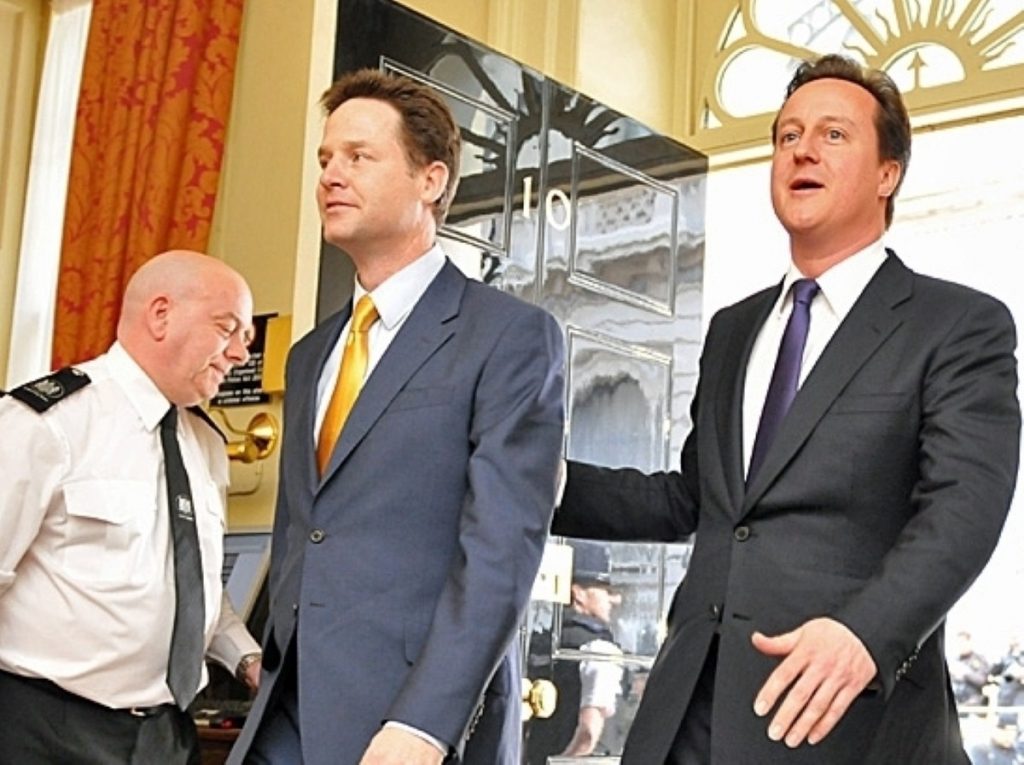The Week in Review: Clegg’s betrayal
By Adam Bienkov
"I'd like to make one thing clear" declared Nick Clegg in his first speech as deputy prime minister.
"This government is going to be unlike any other. This government is going to transform our politics so the state has far less control over you, and you have far more control over the state."
This would be a government unlike any other. A government that would "end the culture of spying on its citizens". A government that would "introduce safeguards to prevent the misuse of anti-terrorism legislation". A government "that is proud when British citizens stand up against illegitimate advances of the state".


Clegg's words now look laughably hollow. Not only has he failed to reduce the power of the state, he has actually placed himself at the very frontline of defending that power.
In the past three years Clegg has backed the "snoopers' charter", pushed for secret courts and stood mutely as evidence emerged of widespread electronic surveillance by the security services.
But it is this week that has really showed how far the Liberal Democrat leader has changed.
Once upon a time, news that spooks were routinely monitoring our electronic communications, detaining those involved in reporting that fact and forcing newspapers to destroy their evidence of it would have brought Mr Clegg out in a rash.
And yet now he is in government he is unwilling to mount even the most rudimentary defence against these abuses by the state.
This is a fact that places Clegg to the right, not only of his own party membership, but even of the Russian government.
In a statement this week, Clegg insisted that the destruction of the Guardian's hard drive was a "reasonable" step for the government to take, before adding that he was also "keen" to protect the paper's freedom of speech.
Quite how this keenness will demonstrate itself remains to be seen.
But what Clegg's transformation from civil libertarian to state authoritarian really shows us is just how far being in government can change you.
As one commentator put it this week: parties of government support more repression, while parties of opposition support less.
The truth of this statement becomes even clearer when you look at the Labour party.
In the past few years Labour has transformed from the party of 28-day detention and ID cards to a party that was among the first to "demand answers" over the detention of David Miranda.
Ed Miliband has worked hard to win over disaffected Lib Dem supporters and is probably far more instinctively liberal than his predecessors.
But the truth is that Labour's newfound concern for civil liberties will last right up until the point they return to government.
Just as the Liberal Democrat's concern for civil liberties will return right at the point that they leave it.
Where's Ed?
It's been another terrible week for Ed Miliband, with countless members of his party queuing up to offer their "friendly advice" for the Labour leader.
While criticisms of Miliband were once restricted to embittered Blairites, even the party's left-wingers now seem eager to give him a shoeing.
Added together it all looks pretty precarious for Ed, but there has been little if any sign of panic from the man himself.
In fact there's been little or any sign of him full stop. At some point in the next few weeks that will need to change.

